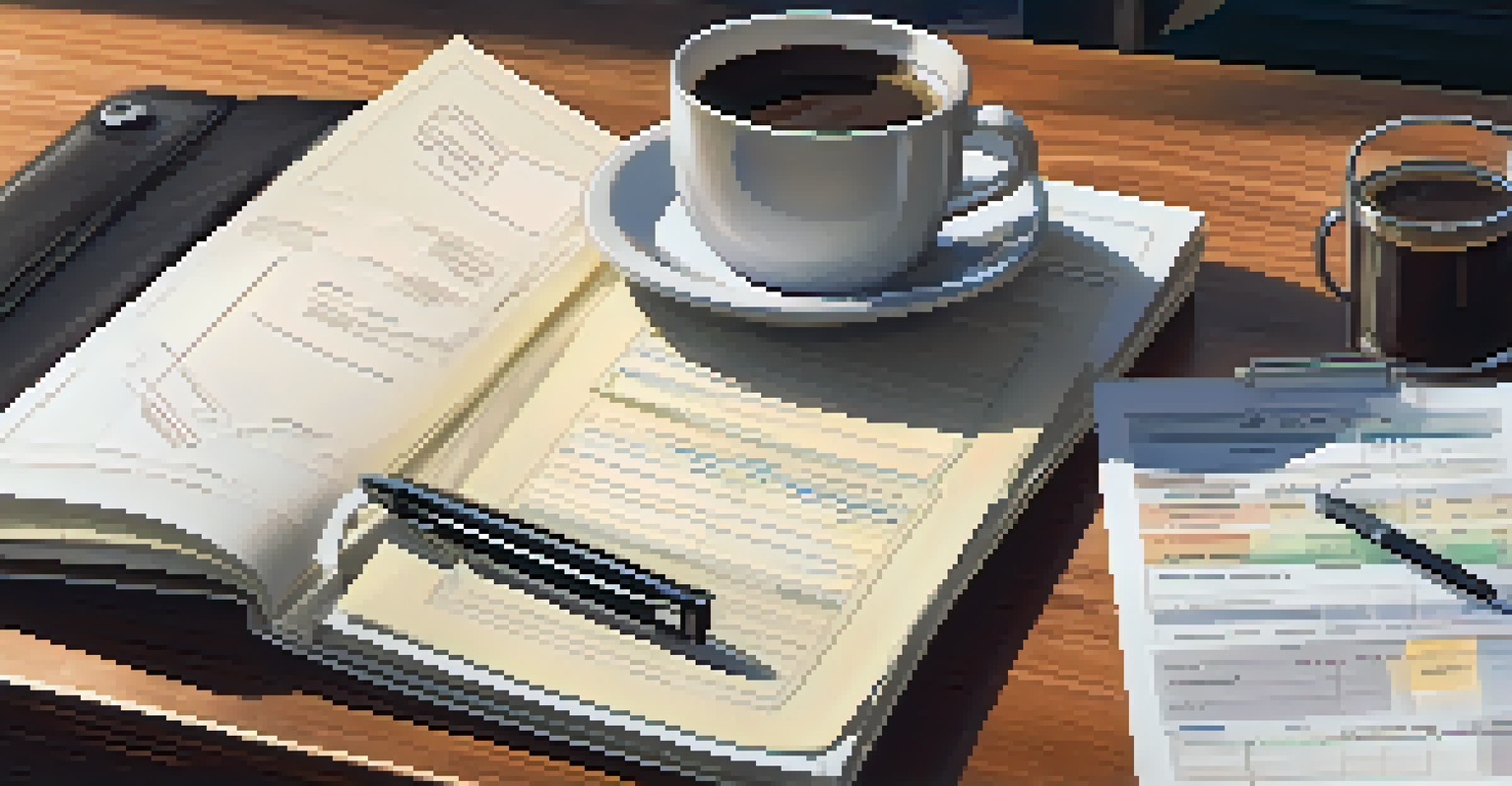Maximizing Tax Deductions for Prescription Drug Expenses

Understanding Prescription Drug Tax Deductions
Tax deductions for prescription drug expenses can significantly reduce your overall tax bill. When you incur costs for medications prescribed by a healthcare professional, these expenses may qualify for deduction. Understanding what counts as a deductible expense is crucial for maximizing your savings come tax season.
The best way to predict the future is to create it.
Not all medication costs are deductible, so it's important to know the specifics. For instance, over-the-counter drugs are generally not eligible unless prescribed by a doctor. Keeping thorough records of all prescriptions and their costs is essential for substantiating your claims to the IRS.
In addition to prescription drugs, you can often include other related expenses, such as certain medical supplies. By being aware of all eligible deductions, you can ensure you're making the most of your tax return.
Qualifying Expenses for Deduction
To qualify for tax deductions, your prescription drug expenses must exceed a specific threshold. For the tax year, you can only deduct the amount of your total medical expenses that exceed 7.5% of your adjusted gross income. This means that careful calculations and documentation of your expenses can help you maximize your deductions.

It's not just the cost of the drugs that counts; you can also include shipping costs if you order medications online. Additionally, if you have to pay for an injection or a medication administered by a healthcare provider, those costs may also be deductible.
Maximize Tax Deductions
Understanding which prescription drug expenses qualify for deduction is crucial for reducing your tax bill.
By keeping detailed receipts and maintaining a log of your expenses, you can ensure that you capture every deductible dollar. This proactive approach can make a significant difference in your tax return.
Documenting Your Prescription Drug Expenses
Proper documentation is key to maximizing your tax deductions. Always keep receipts for the prescription drugs you purchase, as well as any invoices from healthcare providers. This paperwork serves as proof of your expenses when filing your taxes.
An investment in knowledge pays the best interest.
A good practice is to create a dedicated folder, either physical or digital, for all medical-related documents. This way, you won’t have to scramble at tax time trying to locate receipts for your medications.
Consider using a spreadsheet to track your expenses throughout the year. Not only does this provide a clear overview of your spending, but it also makes it easier to calculate the total when it's time to file your taxes.
Filing as Itemized Deductions vs. Standard Deduction
When it comes to tax deductions, you have two options: itemizing your deductions or taking the standard deduction. For many, the standard deduction is the simpler choice, but if your prescription drug expenses are significant, itemizing may yield greater tax savings.
To decide which method is best for you, add up all your deductible expenses, including prescription drugs, medical equipment, and other healthcare costs. If this total exceeds the standard deduction for your filing status, itemizing could be the way to go.
Importance of Documentation
Keeping thorough records and receipts for your prescription drug purchases ensures you can substantiate your claims to the IRS.
Remember, every taxpayer's situation is unique. It might be worth consulting a tax professional to evaluate which option will maximize your savings.
Utilizing Health Savings Accounts (HSAs) and FSAs
Health Savings Accounts (HSAs) and Flexible Spending Accounts (FSAs) are excellent tools for managing healthcare costs, including prescription drugs. Contributions to these accounts are made pre-tax, which can lower your taxable income significantly.
If you're enrolled in an HSA, you can use those funds to pay for qualified medical expenses, including prescription drugs. The best part? These accounts can roll over from year to year, allowing you to save for future healthcare expenses without losing your contributions.
FSAs work similarly but are often tied to employer-sponsored plans and usually require you to use the funds within the plan year. Knowing how to leverage these accounts can help you maximize your overall tax efficiency.
Consulting a Tax Professional for Guidance
Navigating the complexities of tax deductions can be daunting, especially when it comes to medical expenses. Consulting a tax professional can provide clarity and help you identify all potential deductions you might overlook.
Tax professionals are familiar with the latest tax laws and can offer personalized advice based on your financial situation. They can guide you on how to properly document your expenses and advise you on the best filing strategies.
Consult Professionals for Help
Engaging a tax professional can provide tailored advice and ensure you capture all eligible deductions while staying compliant.
Investing in expert advice can ultimately save you money and time, ensuring you maximize your deductions while remaining compliant with tax regulations.
Staying Informed About Tax Law Changes
Tax laws can change from year to year, impacting how you can claim deductions for prescription drug expenses. Staying informed about these changes is essential to ensure you’re taking full advantage of available deductions.
For instance, adjustments to the percentage of income threshold or the categorization of eligible expenses can affect your tax return. Regularly checking the IRS website or subscribing to tax-related newsletters can help keep you in the loop.

In addition to following updates, consider attending local tax workshops or webinars. These resources can provide valuable information and equip you with the knowledge needed to maximize your tax deductions.